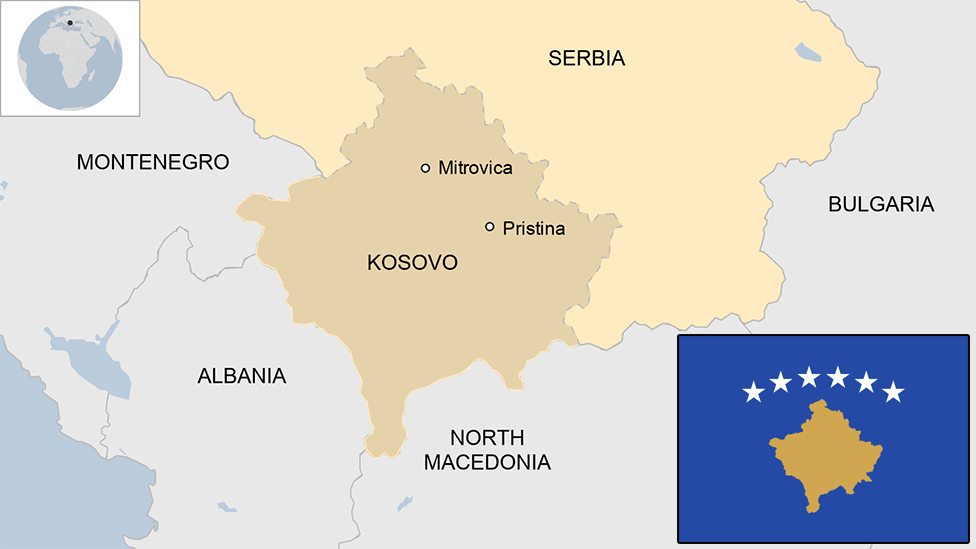Kosovo monastery siege ends after heavy gun battles
- Published
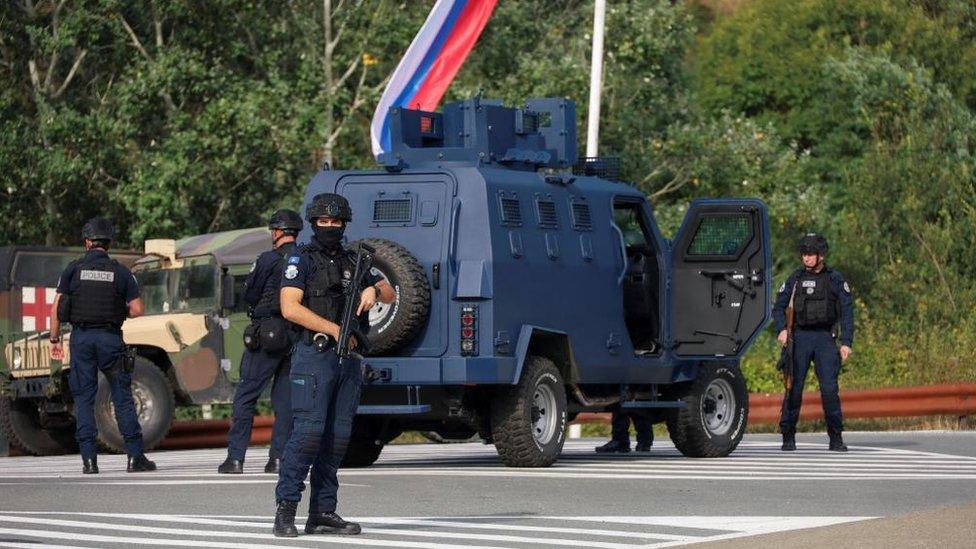
Kosovo police at the scene with troops from the US and EU states in the background
At least four people are dead after Kosovan police cleared a monastery held by at least 30 heavily armed men near the border with Serbia.
"We put this territory under control. It was done after several consecutive battles," Xhelal Svecla, Kosovo's minister of internal affairs said.
The day began with the death of a police officer in Banjska village, before the occupation of the monastery.
Belgrade and Pristina were quick to blame each other for the violence.
Serbian President Aleksandar Vucic said three of those killed in the shooting were confirmed to be Kosovo Serbs.
Sunday's shooting began at about 03:00 (01:00 GMT), after police said they arrived in Banjska where a blockade had been reported.
Officers were attacked from several positions with "an arsenal of firearms, including hand grenades and shoulder-fired missiles", they said in a statement.
A group of about 30 then entered the monastery complex in nearby Leposavic, where pilgrims from the northern Serbian city of Novi Sad were staying.
At least three of the gunmen were killed in battles through the day as police mounted what Mr Svecla described as a "clearance operation".
Mr Svecla said police made several arrests during the operation and seized a large amount of weapons and equipment.
However it remained unclear if all gunmen had been apprehended during the sweep.
Escalation of tension
The attack and ensuing firefight marks one of the gravest escalations in Kosovo for years, and follows months of mounting tension between Pristina and Belgrade.
Kosovo's Prime Minister Albin Kurti blamed "Serbia-sponsored criminals" for the incursion, saying they were "professionals, with military and police background" who were financed and motivated by Belgrade.
Serbia's President Vucic hit back in a televised statement, blaming Mr Kurti for months of "provocations".
While describing the death of the Kosovo police officer as "absolutely reprehensible", he said that Mr Kurti bore responsibility for the incident.
He said Mr Kurti was "the only one to blame, the only one who wants conflicts and war. No other person wants conflicts and war.
"His only wish is to drag us into a war with Nato and that's the only thing he does all day".
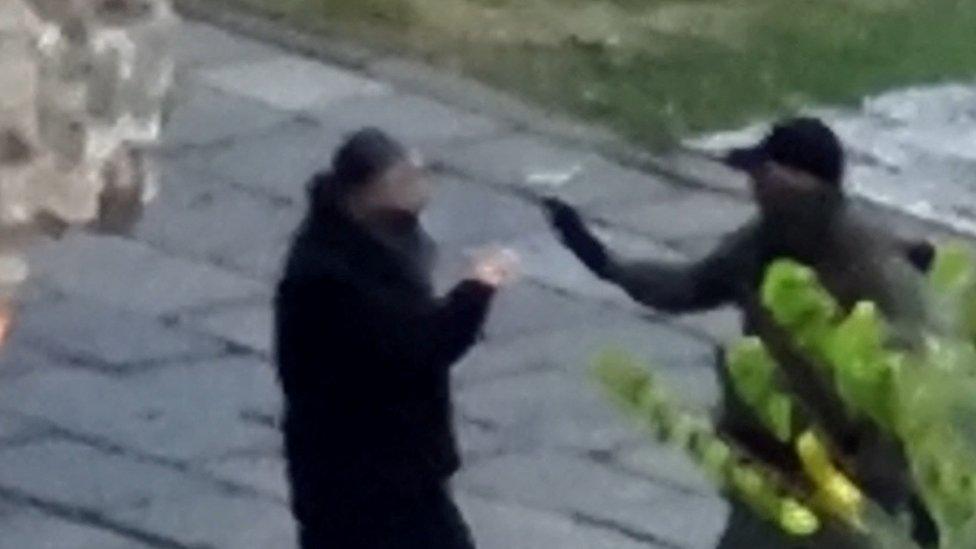
An armed man could be seen with a priest inside the monastery in Banjska on Sunday
Tensions have run high in Kosovo, after violent clashes followed a disputed local election in May and EU-mediated political talks designed to stabilise the situation have stalled.
Kosovo declared independence in 2008 but Serbia - along with Belgrade's key allies China and Russia - does not recognise it.
Many Serbs consider it the birthplace of their nation. But of the 1.8 million people living in Kosovo, 92% are ethnic Albanians and only 6% are ethnic Serbs.
The EU's foreign policy chief Josep Borrell condemned what he called the "hideous attack" and said those responsible must be brought to justice.
Kosovo's foreign minister, Donika Gervalla-Schwarz, criticised Mr Borrell's statement, saying it did not express support for the police nor use the word "terrorists" to describe the attackers.
It comes after the latest EU-mediated talks collapsed last week, with Mr Borrell blaming Mr Kurti for failing to set up the association of Serb-majority municipalities which would give them more autonomy.
Unrest engulfed northern Kosovo in May after Kosovo Albanian mayors were installed in majority-Serb areas, after Serb residents boycotted local polls.
Nato deployed an additional 700 troops to Kosovo to deal with unrest in the northern town Zvecan following the elections.
Some 30 Nato peacekeepers and more than 50 Serb protesters were hurt in the ensuing clashes.
Related topics
- Published2 October 2023
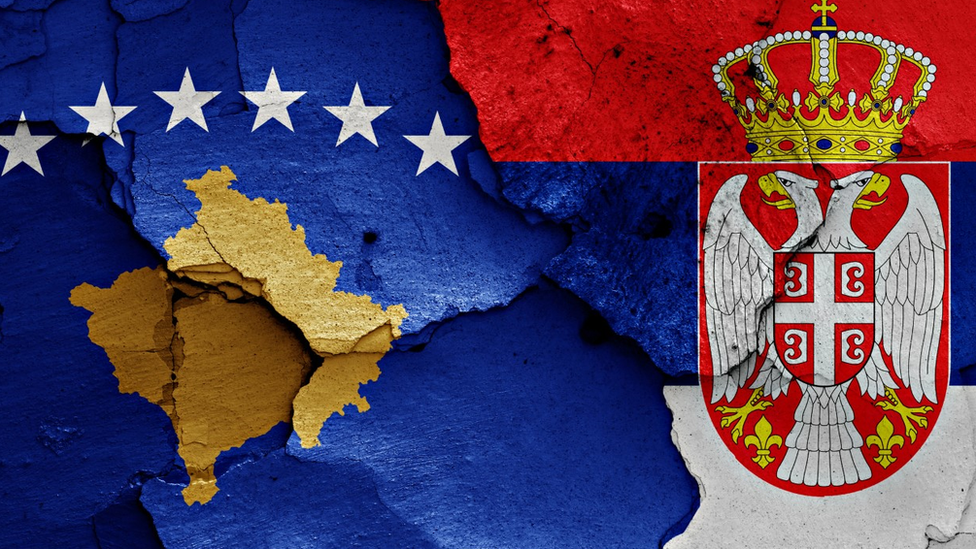
- Published1 June 2023
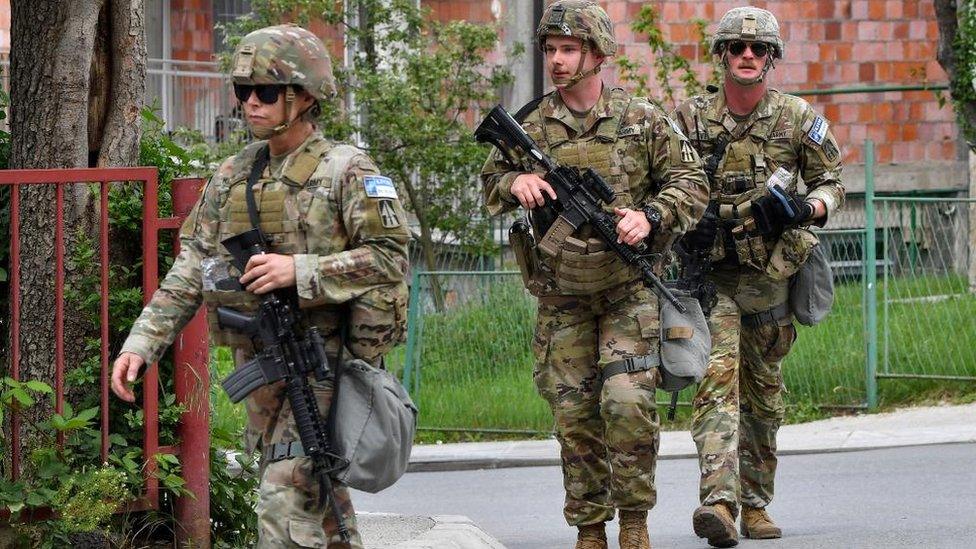
- Published31 May 2023
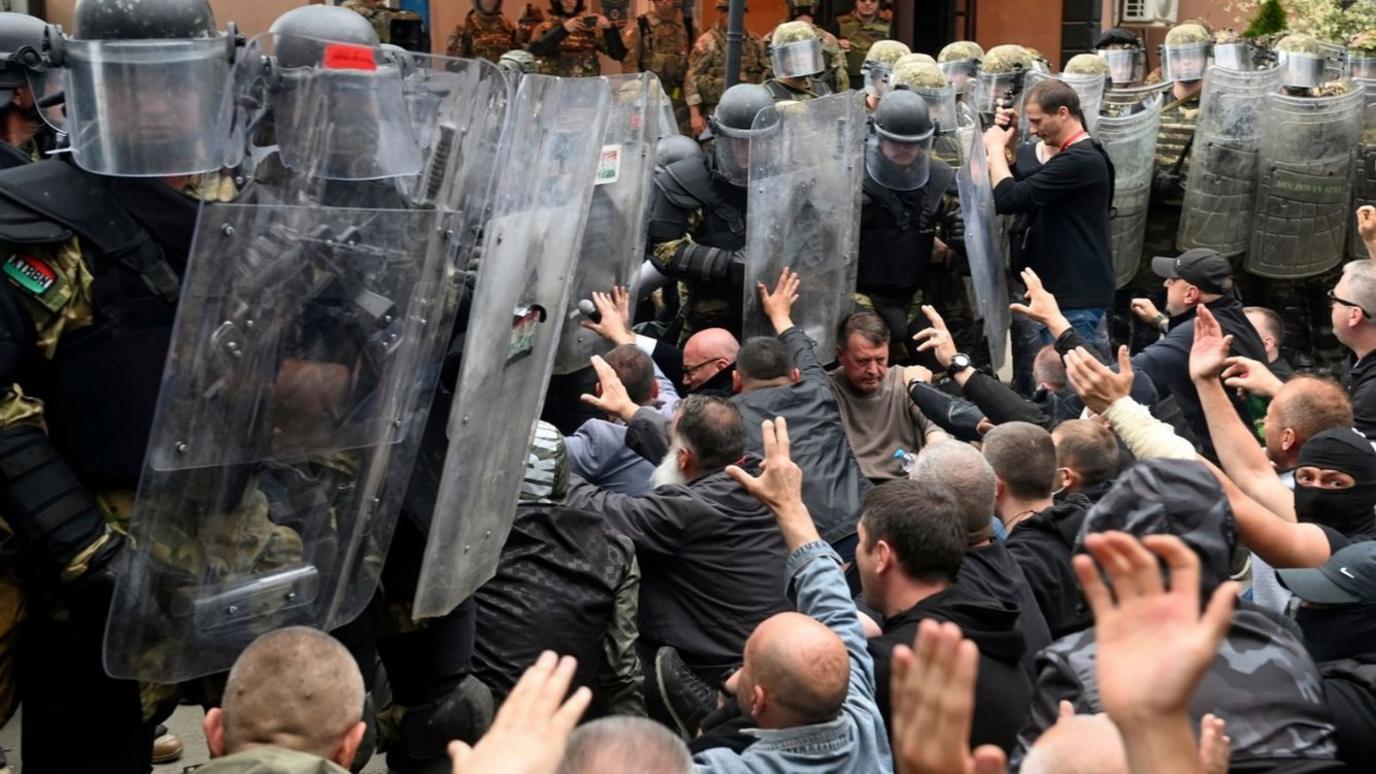
- Published28 June 2023
